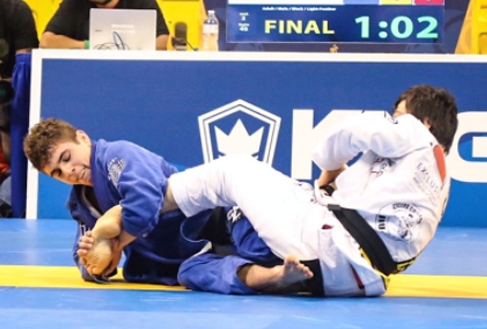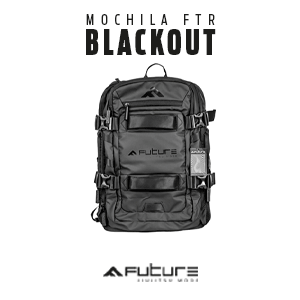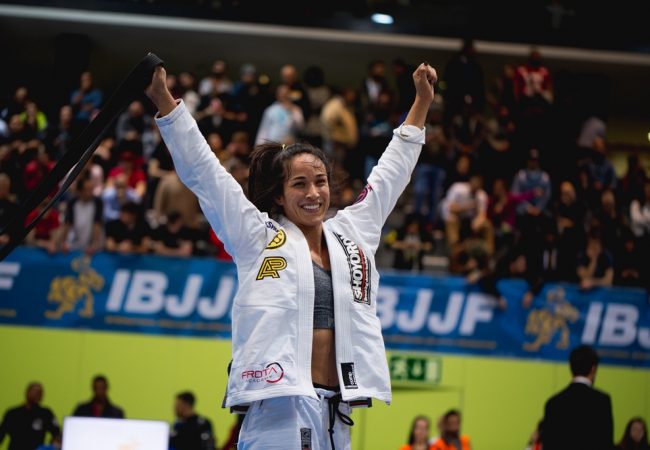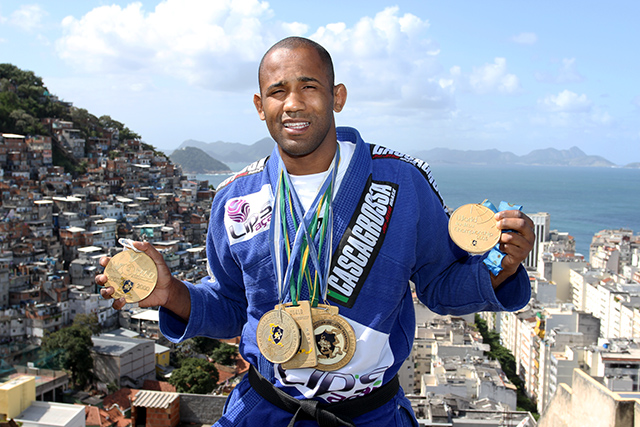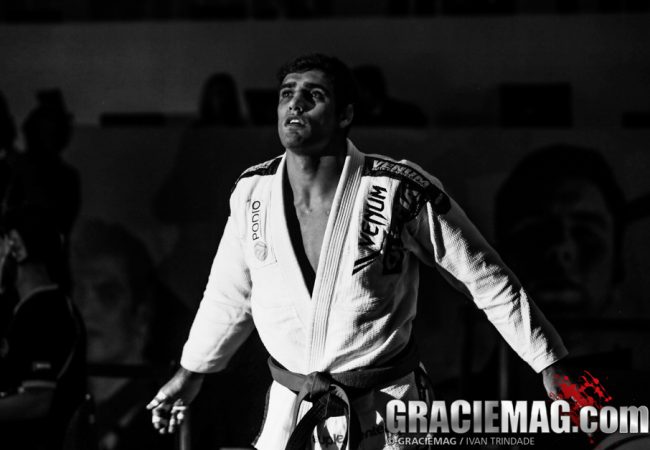The Copacabana room at the JW Marriott hotel, on the Rio de Janeiro waterfront, usually houses chairs, a bunch of jackets and slides for business meetings. At the beginning of December, however, it was with mats, dozens of bottles of water and cupts of yerba mate, as well as the beautiful view of the beach. The GRACIEMAG team arrived at the hotel in the final moments of the no-gi class taught by Caio Terra to the more than 60 students of their camp, practitioners and competitors from the USA, Japan and Russia.
Apart from the main teacher, lessons were also given by Kim Land, Rudson Mateus, and a certain featherweight that walked through the corners of the mat. Less-trained eyes would surely miss the sitting two-time world champion Michael Musumeci, with his reserved ways.
With a wave, our reporter tried to get a chat going. Musumeci gave us nothing, but after replacing his pair of glasses, he was nicer. “I did not see you!” said the short-sighted Musumeci apologetically.
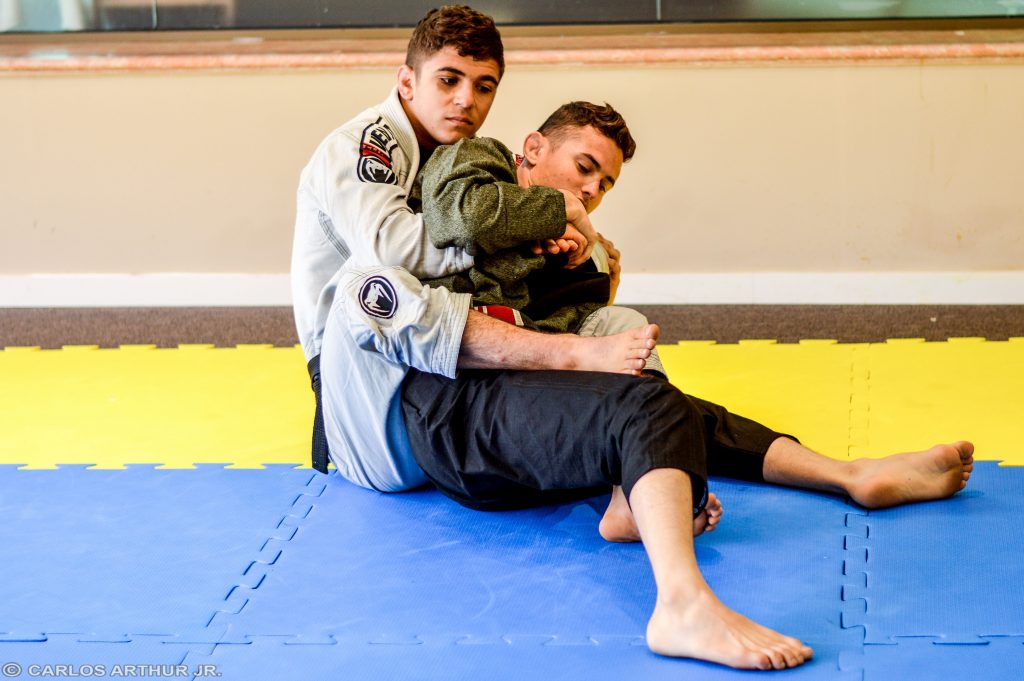
Musumeci takes Caio Terra’s back in training to demonstrate the efficiency of the berimbolo. Photo: Carlos Arthur Jr.
Currently 22 years old, Musumeci (Muzumichi is how it’s pronounced) has long been chasing the dream of being a Jiu-Jitsu world champion. His journey began in 2012 with the first gold in the blue belt, and every subsequent year he was at the top of the podium — until, in 2017, the American got tangled up with João Miyao to win the World Championship as a black belt. What is the best moment of his life? Actually, no.
“I did not feel happy or fulfilled,” said Musumeci, to the astonishment of those who listened. “I worked hard to get there that day, since I was 12 years old, and I did not enjoy it, I was not happy, I got it and I thought, what I do with my life now, I had so much in my head and just like that it was the end. One week after the World Cup I had no desire to do anything else, to train or wear the gi, I was depressed, I thought I was never going to compete again. It was very traumatic. I’m introverted, I had never done a super-fight, and all the spotlights on me at that moment, they brought me a bad feeling.”
“But it all changed as soon as I talked to Caio and other close people,” he says. “I put it into my head that I would train for fun only, without the pressure of competing or winning. go to church and train to have fun. My nervousness is gone and I have become a much better athlete.
“If you look at my two versions of the title, in 2017 and 2018, they are two different athletes. In 2017 I was serious, stiff. So nervous that I could hardly think or enjoy it, I just do not say it was the worst tournament of my life because I I won. At the Worlds this year I was calm, smiling, I was having fun, I put it on my head that if it was to win or lose I wanted to have fun without pressure. And it was the best tournament of my life.
“In the final against Ary Farias, for example, my mind was disconnected. I was not there, it was like I was watching from the stands. When I returned to consciousness I was on Ary’s back. I did not know how I had done that, I felt I could get the finish, there were three minutes left on the clock, but I wanted to take advantage of that moment that I had not had in 2017. It was very cool.”
After remembering with affection the moments from the 2018 Worlds, our team went to lunch with Musumeci, Caio, Rudson and the athletes of the camp. For Musumeci, nothing but rice, beans and farofa, in two deep dishes, with few pieces of meat. “I’m only eating this for a week, I love rice and beans, and incredible as it may seem, I lost four pounds!” The food in Brazil is very healthy, unlike processed foods in the U.S. Açaí as well — it’s the best in the world!”

